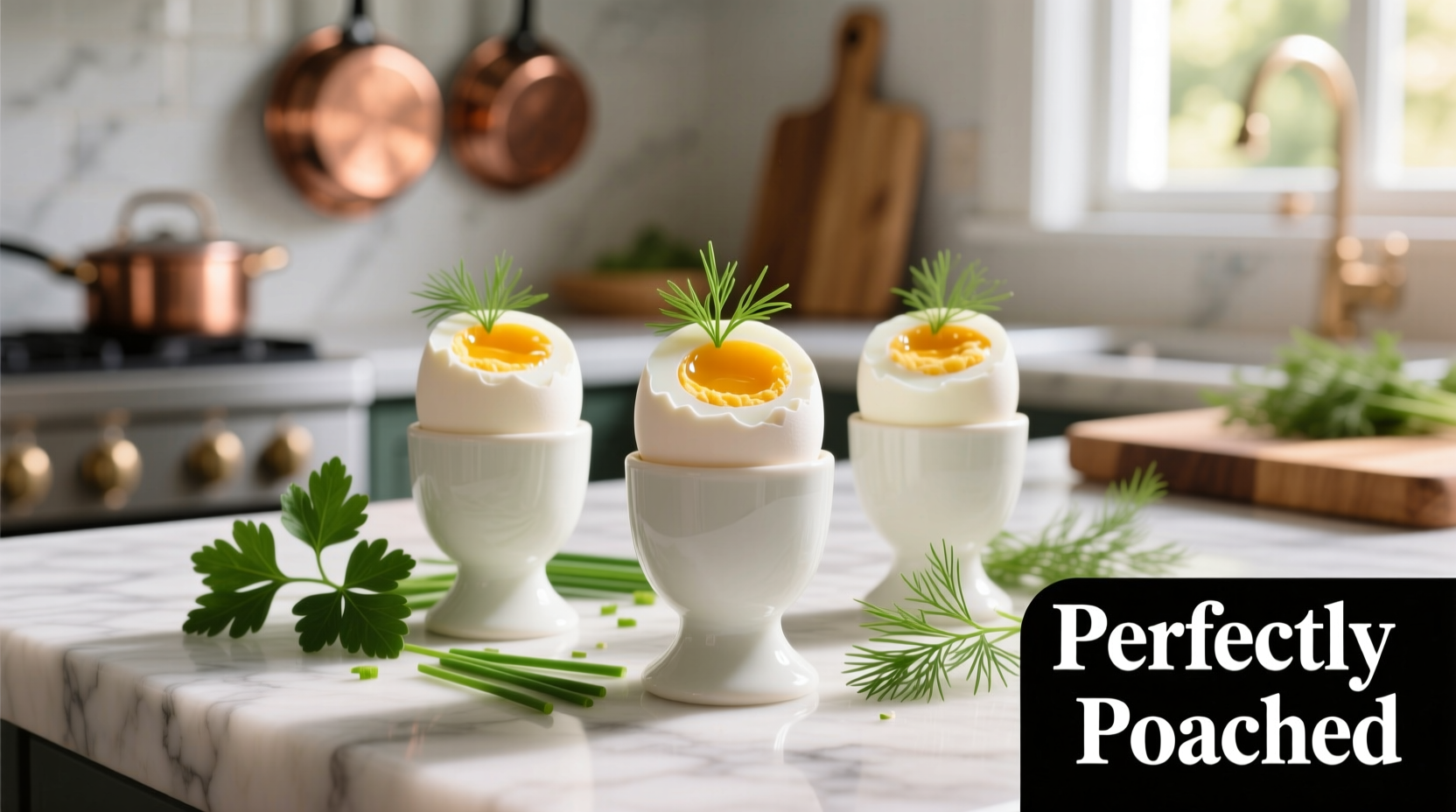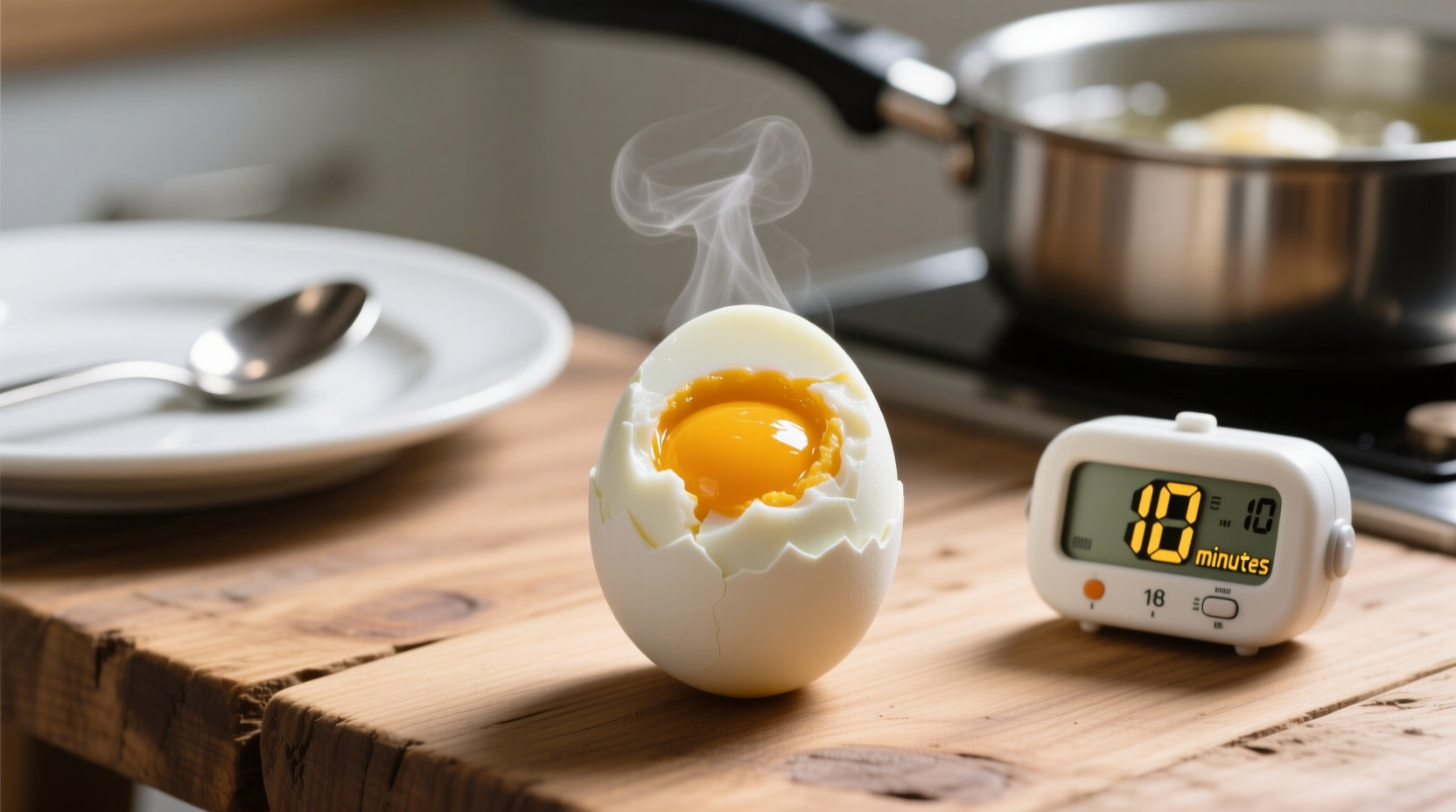The perfect hard boiled egg requires exactly 10-12 minutes of boiling time after the water reaches a full rolling boil. Start with room temperature eggs, gently lower them into boiling water, and set a timer immediately. This precise timing ensures fully set whites and creamy yellow yolks without the unappetizing green sulfur ring.
Getting hard boiled eggs right seems simple, but timing mistakes lead to rubbery whites, chalky yolks, or that dreaded green ring around the yolk. After decades of culinary testing, we've perfected the method that works consistently whether you're cooking one egg or a dozen. This guide delivers the exact timing formula backed by food science, plus professional techniques to make peeling effortless.
Why Timing Matters: The Science Behind Perfect Hard Boiled Eggs
Egg proteins coagulate at specific temperatures. The whites begin setting at 140°F (60°C), while yolks start firming around 158°F (70°C). Boiling too long causes overcoagulation, squeezing out iron from the yolk that reacts with sulfur in the white, creating that unappetizing green ring. The USDA recommends cooking eggs until both white and yolk are firm to ensure food safety while maintaining quality.
| Egg Size | Boiling Time | Yolk Texture |
|---|---|---|
| Small (18-20 oz/dozen) | 9-10 minutes | Creamy center |
| Medium (21-24 oz/dozen) | 10-11 minutes | Ideal firmness |
| Large (24-27 oz/dozen) | 11-12 minutes | Perfectly set |
| Extra Large (27-30 oz/dozen) | 12-13 minutes | Firm without dryness |
The Foolproof Hard Boiled Egg Method
Preparation Phase: Setting Up for Success
Begin with eggs that have reached room temperature (take them out of the refrigerator 30 minutes before cooking). Cold eggs plunged into boiling water are more likely to crack. Fill a saucepan with enough cold water to cover eggs by 1 inch, then add 1 tablespoon of vinegar (helps prevent cracking) and 1 teaspoon of salt (makes peeling easier).
Cooking Phase: Precision Timing
Place eggs gently in the water using a spoon. Bring to a full rolling boil, then immediately reduce to a gentle simmer. Start your timer the moment the water reaches a full boil. For high-altitude cooking (above 3,000 feet), add 1-2 minutes to the standard timing as water boils at lower temperatures.

Cooling Phase: Stopping the Cooking Process
When the timer ends, immediately transfer eggs to an ice bath using a slotted spoon. Let them cool completely for at least 15 minutes. This rapid cooling stops the carryover cooking that causes green yolks. Don't skip this step—residual heat can overcook eggs in as little as 2 minutes.
Peeling Phase: The Professional Technique
Gently tap the egg on a hard surface to create fine cracks all over, then roll it between your palms to loosen the shell. Start peeling from the wider end where the air pocket resides. For stubborn eggs, peel underwater—a trick professional chefs use to help separate shell from membrane.
Common Mistakes and How to Avoid Them
Problem: Green ring around the yolk
Solution: Reduce cooking time by 1-2 minutes. This discoloration indicates overcooking where iron from the yolk reacts with sulfur in the white.
Problem: Difficult peeling
Solution: Use eggs that are 7-10 days old rather than very fresh ones. The air pocket develops as eggs age, creating natural separation between shell and membrane.
Problem: Cracked shells during cooking
Solution: Lower eggs gently into water using a spoon and add vinegar to the water, which helps coagulate proteins quickly if cracks occur.
Storing Your Perfect Hard Boiled Eggs
Store unpeeled hard boiled eggs in a covered container in the refrigerator for up to one week. Never store peeled eggs—they'll absorb refrigerator odors and become watery. The American Egg Board confirms that properly stored hard boiled eggs remain safe to eat for 7 days.
Frequently Asked Questions
Can I make hard boiled eggs in the oven?
Yes, place eggs in a muffin tin and bake at 325°F (163°C) for 30 minutes. This method produces consistently centered yolks but requires careful timing.
Why do my hard boiled eggs have rubbery whites?
Overcooking causes whites to become tough and rubbery. Reduce boiling time by 1-2 minutes and ensure immediate transfer to an ice bath.
How do I prevent the yolk from sticking to the shell?
Use older eggs (7-10 days) rather than very fresh ones. The air pocket develops as eggs age, creating natural separation between shell and membrane.
What's the best way to peel hard boiled eggs?
Tap the egg to create fine cracks, roll between your palms, and peel underwater starting from the wider end where the air pocket resides.
Can I freeze hard boiled eggs?
Freezing whole hard boiled eggs isn't recommended as whites become tough and rubbery. However, you can freeze just the yolks for use in recipes.











 浙公网安备
33010002000092号
浙公网安备
33010002000092号 浙B2-20120091-4
浙B2-20120091-4